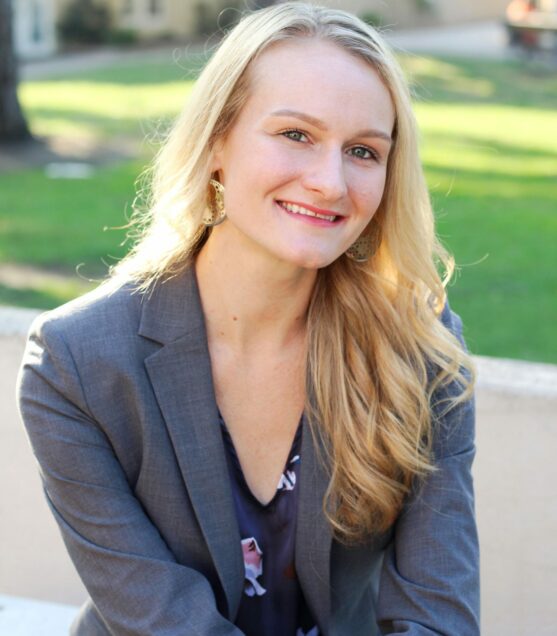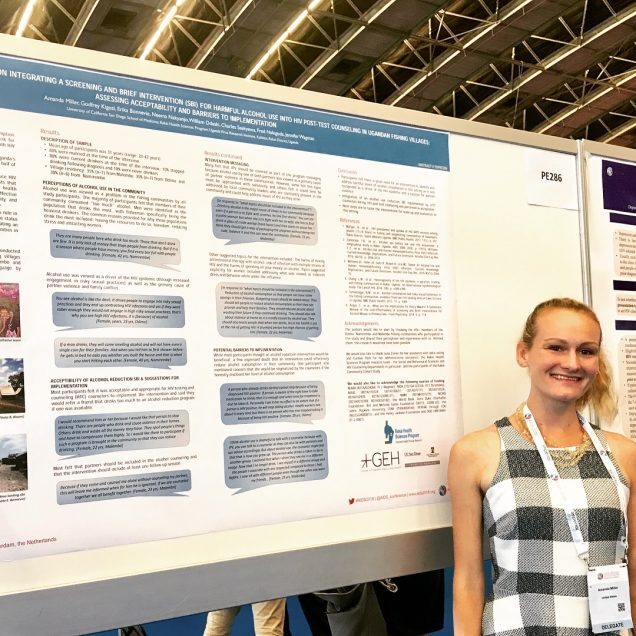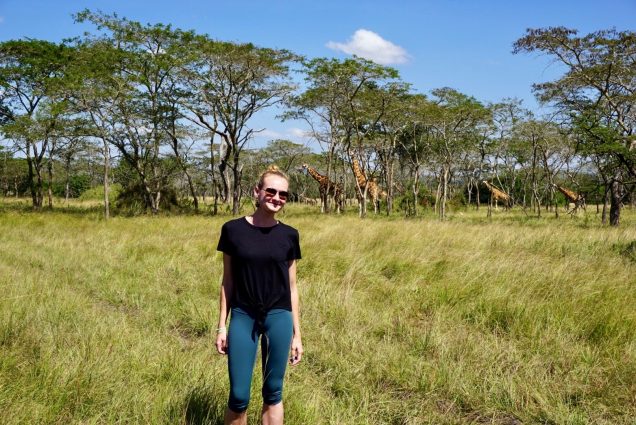Spotlight on… Amanda Miller
 Spotlight on… Amanda Miller, PhD, MS
Spotlight on… Amanda Miller, PhD, MS
As told to URBAN ARCH Admin Core staff, March 2023
Tell us about your academic and research background, and how you became involved with URBAN ARCH.
I am a public health researcher and I’ve been working in the research fields of HIV and alcohol use primarily in sub-Saharan Africa for the past 12 years. I have an MS in Global Health from UCSF and a PhD in Public Health with an emphasis in Global Health from the UCSD/SDSU joint doctoral program. I became connected with URBAN ARCH because my mentor in my doctoral program, Jennifer Wagman, is also an URBAN ARCH trainee. I conducted alcohol use research for my dissertation and I was really interested in the use of biomarkers, so she connected me with URBAN ARCH generally and also with Judy Hahn specifically as a mentor, because of her expertise in alcohol biomarkers.
You recently submitted a K application to NIAAA. What is the focus of your application, and what led you to choose that focus?
The focus of this K is to adapt an evidence-based intervention to address the syndemic of HIV, partner alcohol use, and experiences of intimate partner violence among adolescent girls and young women living with HIV and their partners in Uganda. The idea came from the fact that this syndemic of alcohol use, intimate partner violence, and HIV is a tremendous public health issue in Uganda and sub-Saharan Africa more broadly. All of these issues are bi-directionally related, so approaches to effectively address any one of these must consider the other two issues, in order to see true public health impact. While there are some promising psycho-social interventions to address alcohol use in sub-Saharan Africa, this syndemic hasn’t really been addressed through evidence-based interventions. Additionally, there is a lack of interventions that are tailored specifically to address these issues among young pregnant and breastfeeding women, which is a population that experiences the additional public health risk of onward transmission of HIV to their offspring through vertical transmission or breastfeeding. Basically, the focus of the K came from recognizing a need for an intervention to address this public health issue, and realizing that what’s out there would need to be tailored to be appropriate for this high-risk population.
 What resources have been helpful for you in developing your K application?
What resources have been helpful for you in developing your K application?
Through URBAN ARCH, I was connected with Judy Hahn, who I have been working with closely for the last two years now. We’ve published several papers and she is helping me gain experience with the use of biomarker data, which is an area of interest for me. My dissertation work used self-reported data, but in this next stage of my career I’d like to move into being someone who has expertise in the use of alcohol biomarkers. URBAN ARCH provided access to a top-tier mentor in alcohol biomarkers (Dr. Hahn), who is a mentor on my K and provided me with support in developing my application. I also utilized CFAR for peer review of my application when I had a full draft, and I participated in several other intramural application peer review opportunities at SDSU and UCLA, where I was previously doing my postdoc. Coming to the URBAN ARCH Annual Meeting last year also provided me the opportunity to schedule a one-on-one mentoring session with Dr. Kendall Bryant, so I was able to introduce myself and my idea and get a feel for priorities at NIAAA. It was very beneficial to have that direct interaction with the Office of AIDS Research.
What were the most challenging and most rewarding aspects of writing this application?
It is a huge undertaking, and as an early stage investigator there are moments where it feels like you don’t know what you’re doing, despite the fact that you’re surrounded by fantastic mentorship. But I think that what’s exciting is that if you surround yourself with mentors that believe in you and encourage you, little by little you feel like you are moving towards accomplishing this tremendous task. The exciting part is pushing submit, making it go away for a few months, and hoping you’ve done a good job.
Do you have any advice for other early stage investigators who are currently developing their K award applications?
My main advice is to not underestimate how long some of the administrative aspects of the application might take, like securing an appointment. In order to submit a K you need an institutional letter of support, basically ensuring that you have a position, and that process can be very time-consuming. I would suggest to anyone developing a K that one of the first steps they take is to make sure they will have an appointment in place. The application cannot be submitted without getting that letter and it’s completely out of your hands once you make that request. I’d also encourage people to just start writing. Anticipate that there will be many drafts, but put pen to paper (or finger to keys) and get the ball rolling.
What directions do you see your research going in in the future?
The training goals for this K are to develop expertise in dissemination and implementation science and implementation of intervention research, and then also expertise in the use of alcohol biomarkers. I am hoping to transition from where I’ve been right now, which is largely working on observational studies and trying to understand public health issues, to move into the space of actively trying to tailor and evaluate interventions to address those issues. My hope is that this K is the starting point for a career trajectory where I will continue to focus on scaling up access to effective interventions to address the syndemic of health issues among populations most at risk. In the instance of the K, that’s pregnant and breastfeeding women, but I don’t feel limited to that and I’m interested in high risk populations as well. I would like to increase access to effective alcohol reduction programming in areas where such services aren’t currently available.
Can you tell us one thing about yourself that readers might find interesting?
As much time as I spend at my computer, I actually really like to be outside. I love to hike and I’m a little bit of an adventure seeker- I’ve been cage diving, skydiving, and bungee jumping. I love out of the box experiences!
